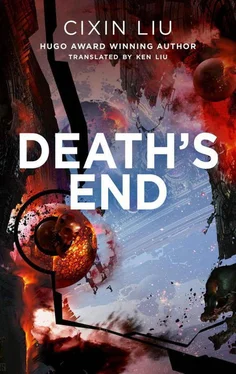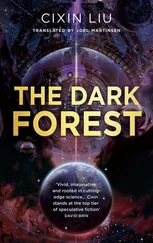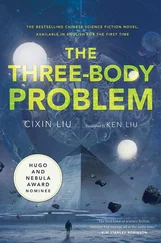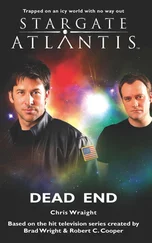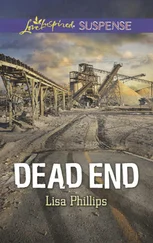Cheng Xin turned and smiled at him through the visor. “I’m not afraid.”
“I know you’re not afraid. I just want to tell you something in case we don’t… I know about your experience as the Swordholder. I want to let you know that you didn’t do anything wrong. Humanity chose you, which meant they chose to treat life and everything else with love, even if they had to pay a great price. You fulfilled the wish of the world, carried out their values, and executed their choice. You really didn’t do anything wrong.”
“Thank you,” Cheng Xin said.
“I don’t know what happened to you after that, but you still didn’t do anything wrong. Love isn’t wrong. A single individual cannot destroy a world. If that world was doomed, then it was the result of the efforts of everyone, including those living and those who had already died.”
“Thank you,” Cheng Xin said. Her eyes felt hot and wet.
“As for what will happen next, I’m not afraid either. When I was on Gravity, all those stars in the emptiness made me afraid and tired, and I wanted to stop thinking about the universe. But it was like a drug, and I couldn’t stop. Well, now I can stop.”
“That’s good. You know something? The only thing I’m scared of is that you’ll be afraid.”
“I’m the same.”
They held hands, and as the sun continued its mad dance, they gradually lost consciousness and stopped breathing.
About Seventeen Billion Years After the Beginning of Time Our Star
It took a long time to wake up.
Cheng Xin recovered her awareness gradually. After her memory and sight came back, she knew right away that the neural computer had booted successfully. A soft light illuminated the inside of the cabin, and she could hear the machines humming reassuringly. The air was warm. The shuttle had been revived.
But Cheng Xin soon realized that the lights inside the cabin came from different fixtures than before—perhaps these were backups designed specifically for reduced-lightspeed use. There were no information windows in the air. It was possible that the reduced lightspeed meant such holographic displays were no longer operable. The interface of the neural computer was limited to that flat screen, which now resembled a color bitmap display from the Common Era.
Guan Yifan was drifting in front of the display, tapping on it with the fingers of a gloveless hand. He turned and smiled at Cheng Xin, made a hand gesture indicating that it was okay to drink, and then handed her a bottle of water.
“It’s been sixteen days,” he said.
The bottle felt warm. Cheng Xin saw that she wasn’t wearing gloves, either. She realized that although she was still wearing the primitive space suit, her helmet had been removed. The temperature and pressure inside the cabin were comfortable.
Since she had recovered enough to move her hands, Cheng Xin unstrapped herself and drifted next to Yifan to look at the screen with him, their space suits squeezed tightly side by side. Several windows were up on the screen, each showing rapidly scrolling numbers: diagnostics on the shuttle’s various systems. Yifan told Cheng Xin that he had established contact with Hunter, whose neural computer had also apparently booted successfully.
Cheng Xin looked up and saw that the two portholes were still open. She drifted over. Guan Yifan dimmed the cabin lights so she could see through them without glare. They anticipated each other’s needs now as though they were a single person.
At first, the universe didn’t appear to have changed from what she had seen before: The ship continued to orbit around Planet Blue at reduced lightspeed; the two star clusters, blue and red, continued to change their shapes erratically at the two ends of the universe; the sun continued to dance madly between being a line and a circle; and color patches continued to whip across Planet Blue’s surface. When Cheng Xin tried to match her gaze to the rapidly flowing surface of Planet Blue, she finally noticed something different: the blue and white patches had been replaced by purple ones.
Yifan pointed to the screen. “The propulsion system self-diagnosis is complete. Everything’s basically working. We can decelerate out of lightspeed anytime.”
“The fusion drive still works?” Cheng Xin asked. Before they entered hibernation, this question had weighed on her mind. She had not asked because she knew that she was likely to receive a disappointing answer, and she didn’t want to give Yifan more to worry about.
“Of course not. With such a reduced lightspeed, nuclear fusion puts out too little power. We have to use the backup antimatter drive.”
“Antimatter? But wouldn’t the containment field be affected by the reduced lightspeed?”
“No problems there. The antimatter engine was designed specifically for reduced-lightspeed conditions. When we’re on long expeditions like this, we equip all our spacecraft with reduced-lightspeed propulsion systems…. Our world puts a lot of effort into developing such technologies. The goal isn’t to solve the problem of accidentally entering trails left by curvature propulsion; rather, it’s because we have to plan for the possibility of having to conceal ourselves inside a light tomb, or a black domain.”
Half an hour later, the shuttle and Hunter both activated their antimatter engines and began decelerating. Cheng Xin and Guan Yifan were pressed against their seats by the hypergravity, and the porthole screens rose to block out the outside. Violent jolts seized the shuttle, but gradually subsided. The deceleration process took less than twenty minutes. Then the engines shut off, and they were again weightless.
“We’re out of lightspeed,” Guan Yifan said. He pressed a button, and the screens over the two portholes retracted.
Through the portholes, Cheng Xin saw that the blue and red star clusters were gone, and the sun was now a normal sun. But the sight of Planet Blue in the porthole on the other side surprised her: Planet Blue was now “Planet Purple.” Other than the ocean, which was still a light yellow, the rest of the planet was covered by purple—even the snow was gone. She was, however, most shocked by the appearance of space itself.
“What are those lines?” Cheng Xin cried out.
“I think they are… stars.” Yifan was as amazed as she.
All the stars in space had turned into thin lines of light. Cheng Xin was actually familiar with such a sight: She had seen plenty of long-exposure photographs taken of the starry sky from Earth. Due to the Earth’s rotation, the stars in the pictures all became concentric arcs of approximately the same length. But now, the stars she saw were segments of different lengths and aligned every which way. The longest few lines, in fact, took up almost a third of the sky. These lines crossed each other at different angles and made space appear far more confusing and chaotic than before.
“I think they’re stars,” repeated Yifan. “A star’s light must pass through two interfaces before getting to us: First, it must go through the interface between regular lightspeed and reduced lightspeed, and then through the event horizon of the black hole. That’s why the stars look so strange to us now.”
“We’re inside the black domain?”
“That’s right. We’re inside the light tomb.”
The DX3906 solar system was now a reduced-lightspeed black hole completely sealed off from the rest of the universe. The starry sky woven by the multitude of crisscrossing silver threads was a dream that could be seen but would never be achieved.
“Let’s go down to the surface,” Yifan said after a long silence.
The shuttle decelerated further and lowered its orbit. With a series of powerful jolts, it entered the atmosphere of the planet and descended toward the surface of this world in which the two of them were doomed to spend the rest of their lives.
Читать дальше
